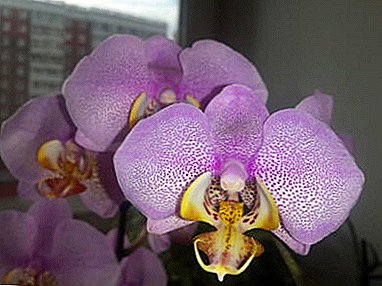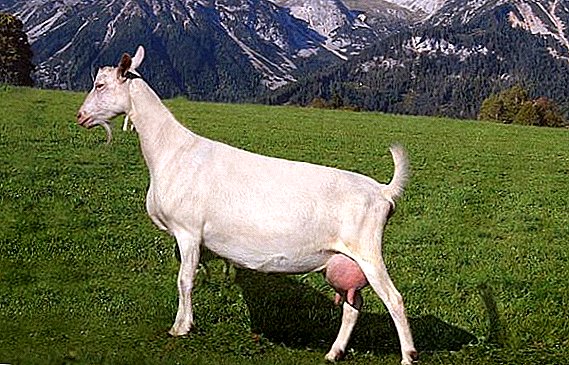 Indo-bows are popular poultry because of their simplicity, rapid weight gain and meaty carcasses. But these birds also have weak points, for example, a predisposition to certain diseases. This article will tell about the ailments to which these birds are prone, as well as about the methods of their treatment and prevention.
Indo-bows are popular poultry because of their simplicity, rapid weight gain and meaty carcasses. But these birds also have weak points, for example, a predisposition to certain diseases. This article will tell about the ailments to which these birds are prone, as well as about the methods of their treatment and prevention.
Noncommunicable diseases
Most often, health problems of indoutok arise from the lack of any vitamins, and the symptoms and course of the disease differ when there is a shortage of one or another beneficial substance. Non-communicable diseases in these birds result from the non-observance of conditions of detention, poor diet, and the lack of proper care.
Avitaminosis A
Symptoms Lack of this vitamin is manifested in ducks as follows:
- pale paws, skin and beak;
- feathers ruffled;
- egg production is significantly reduced;
- no appetite;
- conjunctivitis and profuse tears;
- lethargy;
- bird growth slows down;
- eyelids turn sour.
 Treatment. As a therapy, it is recommended to apply fish oil, it should be given to birds 2-3 drops per day, and the duration of the course should be at least 14 days. Omega-acids help strengthen the body and improve skin condition. In the livestock menu, you must add products with a high content of nutrients.
Treatment. As a therapy, it is recommended to apply fish oil, it should be given to birds 2-3 drops per day, and the duration of the course should be at least 14 days. Omega-acids help strengthen the body and improve skin condition. In the livestock menu, you must add products with a high content of nutrients.Did you know? On the legs of the ducks there are no nerve endings and vessels, which allows them to move through the snow and ice, without experiencing discomfort.
Prevention. As a preventive measure, you need to constantly monitor the diet of birds and ensure that they receive enough nutrients. Herbal flour, fresh herbs, carrots, duckweed and algae, such as kololistnik, should be included in their daily menu. 
Avitaminosis B
Symptoms Lack of B vitamins leads to disruption of the nervous system, in poultry it manifests itself in the form of:
- weakness;
- seizures;
- slow growth;
- ducks throw their heads back;
- anemia;
- leg joints;
- loss of appetite;
- reduction or absence of egg production.
Poultry breeders will find it helpful to familiarize themselves with all the subtleties of breeding Indo-ducks at home, and in particular with the rules for equipping a room for growing musk ducks.
Treatment. In order to fix the problem, you need to adjust the menu of ducks. In their diet, there must necessarily be more vitamins of this group, and their reserves can be replenished with yeast, bran, greens, grains, dairy products, best of yogurt or sour cream, bone or fish meal.
Prevention. A balanced and varied diet is the best prevention of vitamin B deficiency. 
Vitamin D
Symptoms A lack of vitamin D in the body of the bird causes a violation of the mineral metabolism and leads to rickets. It can be recognized by the following symptoms:
- birds lag behind in physical development;
- beak and bones soften;
- paws weak;
- the eggshell becomes soft.
Important! An excess of vitamin D can also adversely affect the health of the birds, provoking active salt deposition and hardening of the eggshell. In this regard, it is necessary to maintain a balance of nutrients.
Treatment. Solving the problem is necessary by adjusting the food and conditions of detention. Fish oil, yeast, shells, chalk, gypsum, fish meal and mineral complexes should be present in the poultry diet. It is necessary to increase the time of walking or equip the house with UV lamps that should work at least 6 hours a day.  Prevention. Preventive measures boil down to the fact that it is necessary to provide independent leisure time walking in the open air or artificial lighting in the poultry house. Also it is necessary to pay attention to the diet of birds and control their consumption of necessary nutrients.
Prevention. Preventive measures boil down to the fact that it is necessary to provide independent leisure time walking in the open air or artificial lighting in the poultry house. Also it is necessary to pay attention to the diet of birds and control their consumption of necessary nutrients.
Avitaminosis E
Symptoms Deficiency of this vitamin manifests itself in this way:
- slow heartbeat;
- ducks constantly cover their eyelids;
- loss of appetite;
- bouts of seizures occur;
- Do not lay eggs.
Prevention. In order to prevent the problem, it is necessary to include wheat, chopped grass and dairy products in the pet ration. 
Cloacite
Symptoms A deficiency of beneficial substances may provoke inflammation of the mucous membrane in the cloaca in the female. The disease manifests itself in the form of:
- lack of egg-laying;
- contamination of feather cover in the anus;
- ulcers and irritations in the area of cloaca.
Did you know? Indians cultivated musk or indo outcast. After the discovery of America, it was brought to Europe, and then to other continents, and is still successfully bred in different parts of our planet. Their popularity is due to unpretentiousness and the fact that the carcass of such ducks is much more fleshy than that of ordinary ones.
Treatment. In order to get rid of cloacite, it is necessary to wash the area around the anus with furacilin and treat with iodine. The mucosa should be completely cleansed of purulent secretions, and only after that, Streptocidal or Tetracycline ointment is applied to the area of the cloaca.  Prevention. As a preventive measure, it is necessary to control the nutrition of the birds, the feed should contain vitamins A, E and D, as well as minerals. It is recommended to install containers with shells in places of walking and to provide regular water procedures.
Prevention. As a preventive measure, it is necessary to control the nutrition of the birds, the feed should contain vitamins A, E and D, as well as minerals. It is recommended to install containers with shells in places of walking and to provide regular water procedures.
Yolk peritonitis
Symptoms The main symptoms of inflammation in the abdominal cavity and yolk peritonitis are:
- lethargy;
- refusal of food;
- fever;
- Indoorts peck out fluff in the area of the cloaca;
- egg production is reduced.
Read about how many months it is better to cut a meat ball for meat.
Prevention. Among the preventive measures are the following:
- the diet should certainly be varied and include a large amount of vitamins and minerals;
- pets should be provided with a spacious warm house;
- let them out for walks only in warm, dry weather.

Esophagus occlusion
Symptoms Curious birds who have a good appetite, can eat something too big for their esophagus, and this will cause its blockage. You can notice this by the fact that:
- goiter hardens in ducks;
- they become lethargic and weak;
- refuse food.
Prevention. In order to prevent the obstruction of the esophagus, you should clear the place for walking from objects that may be dangerous to the bird. 
Qatar goiter
Symptoms May occur due to improper feeding and care, namely the use of sticky and inedible products. Manifestation of catarrh occurs in the indoutok as follows:
- the bird becomes restless;
- goiter is swollen;
- the neck is in an extended position;
- a substance with an unpleasant odor is released from the beak.
After a day, you need to feed the duck with liquid porridge and stick to this diet for at least 3 days.  Prevention. Feed for indoutok will certainly be uniform and soft. In no case should you avoid swallowing stones and other foreign objects, you need to get rid of them when planning a place for walking birds.
Prevention. Feed for indoutok will certainly be uniform and soft. In no case should you avoid swallowing stones and other foreign objects, you need to get rid of them when planning a place for walking birds.
Agree that in order to maintain the health of the birds and their successful development, you must follow certain rules and norms of feeding.
Cannibalism
Symptoms Manifested in the form of:
- spitting up fellow paws;
- Indoor pluck feathers from each other.
Prevention. In order to prevent cannibalism in the duckling, you should provide your pets with a varied menu with a high content of useful substances, walk them daily, and also monitor the level of humidity in the house. 
Food poisoning
Symptoms The use of poor quality, expired or poisoned food can cause health problems. The main symptoms of food poisoning are:
- lethargy;
- diarrhea or, conversely, constipation in a bird;
- gagging urge.
Important! Rare, but possible symptom of duck food poisoning are convulsive seizures.
Treatment. Patients with indoctrination as a therapy should be provided with abundant drinking, as well as with absorbing drugs. This may be activated carbon, which is diluted in warm water, or coal in combination with magnesium sulfate, the ingredients are mixed at the rate of 10 ml of magnesium per 0.5 g of charcoal.  Activated carbon, diluted in water The dosage is designed for 1 kg of weight, respectively, it is required to be increased depending on the complexion of the indoutink.
Activated carbon, diluted in water The dosage is designed for 1 kg of weight, respectively, it is required to be increased depending on the complexion of the indoutink.
Prevention. Birds should be provided with fresh, varied and high-quality feed.
Read about how to distinguish a male from a female Indoot.
Infectious diseases
More serious are infections that can cause great damage to the health of birds. The danger also lies in the fact that such diseases can be dangerous, including for people. Especially those who are at risk, that is, children, old people and people with weakened immunity.
Hepatitis
Symptoms Viral lesions of the liver or hepatitis occur in birds very hard and are accompanied by the following symptoms:
- lethargy and weakness;
- head and wings are lowered;
- breathing is difficult;
- in the latter stages, sick birds fall on their side and suffer from convulsive seizures.
 Treatment. Only veterinary doctors can diagnose viral hepatitis and write down the treatment; therapy always includes antibiotics. But their dosage and frequency of administration can only be prescribed by a specialist after confirming the diagnosis.
Treatment. Only veterinary doctors can diagnose viral hepatitis and write down the treatment; therapy always includes antibiotics. But their dosage and frequency of administration can only be prescribed by a specialist after confirming the diagnosis.Prevention. Rodents often suffer from the disease, so timely disinfecting the house from pests and maintaining sanitary and hygienic standards is considered one of the main preventive measures. Sick birds must be kept in quarantine, and fish oil, Tetracycline and Biomitsin should be given healthy as a preventive measure.
Important! Infections lead to a massive incidence of livestock and can progress so quickly that ducks die within a few hours. The carcasses of animals whose cause of death has become an infection are burned.
Coccidiosis
The danger of the disease lies in the fact that its causative agents of coccidia retain their viability for a long time and can catch up with the hindrance everywhere. They are carried by wild birds, they are stored for a long time in the litter of sick individuals and on the tops of the plants that they have been fertilized.  Symptoms The main symptoms of coccidiosis are:
Symptoms The main symptoms of coccidiosis are:
- diarrhea, blood and frothy blotches are present in the stool;
- depressed state;
- refusal of food;
- weight loss.
It will probably be useful for you to find out when eggs begin to carry eggs, as well as the rules for incubating hawks at home.
Treatment. Therapy should be started when the first symptoms are detected, since the neglected disease can be treated very badly, often causing complications such as cutting paws and wings. The most effective drugs for coccidiosis are Dexox, Kaidil, Coccidin, Dialen, Baikoks, Sakoks, the dosage and duration of administration are determined according to the age and weight of the chicks.  Prevention. In order to prevent infection, it is necessary to take a number of precautionary measures, namely:
Prevention. In order to prevent infection, it is necessary to take a number of precautionary measures, namely:
- contain adults and chickens separately,
- sick birds need to be quarantined;
- keep clean and regularly disinfect the house.
As a preventive measure, Sidfadimezin is given to the Indo-Takes at the rate of 40 mg of the drug per kg of bird weight.
Paratyphoid fever (salmonellosis)
One of the most dangerous infectious diseases for indoutok. When an outbreak of salmonellosis occurs, most of the young stock may die, and it is the young birds that most often pick up salmonella. Ducklings suffer from acute paratyphoid fever, adults are also vulnerable to infection, but the disease is chronic.
Symptoms Ducklings have the following symptoms:
- lack of appetite;
- thirst;
- nervous system disorder;
- diarrhea;
- conjunctivitis.
 Nervous System Disorder in Induced Ducks Salmonellosis occurs almost imperceptibly in adult individuals, sometimes the same symptoms occur as in young animals, and sometimes they are completely absent.
Nervous System Disorder in Induced Ducks Salmonellosis occurs almost imperceptibly in adult individuals, sometimes the same symptoms occur as in young animals, and sometimes they are completely absent.Treatment. Birds can be treated with strong antibiotics; only a veterinarian can prescribe the dosage and duration of the course.
Important! It is necessary to care for sick ducks with the observance of caution and the use of protective equipment, since paratyphoid feels dangerous to humans.Prevention. In order for the birds not to catch salmonellosis, it is necessary to maintain cleanliness in the duckling and regularly treat every corner of it with disinfectants.
Pasteurellosis (cholera)
Infection with cholera can occur through food, water, insect bites, contact with infected animals, and so on.  Symptoms The main symptoms of cholera are:
Symptoms The main symptoms of cholera are:
- loss of appetite;
- thirst;
- lethargy and weakness in birds;
- loose stools with bloody patches;
- heat;
- swelling of the leg joints.
Did you know? The Mulard hybrid breed, which was formed when the Peking and Indo-ducks are crossed, is kept in the dark and is especially overfed in order to get a liver for foie gras.
Prevention. In order to prevent outbreaks of pasteurellosis, it is necessary to maintain cleanliness in the house, to monitor the hygiene of the ducks, as well as to avoid their contact with stray animals. 
Parasitic diseases
Often, because of poor-quality food and drinking, ducks become infected with worms or worms. Parasites settle in the oviduct, gastrointestinal tract and respiratory organs.
Symptoms The main signs of their presence are the following:
- sharp loss of bird mass;
- cessation of egg production;
- refusal of food.
 Prevention. The precautionary measures consist in the need to minimize contact with stray animals and regularly disinfect the house. Sick birds are certainly isolated.
Prevention. The precautionary measures consist in the need to minimize contact with stray animals and regularly disinfect the house. Sick birds are certainly isolated.Important! From an extract of the heart and liver, indoutok produces a fairly popular antiviral drug "Oscillococcinum". This drug belongs to homeopathic, and it can be used for the prevention of influenza and acute respiratory viral infections, even to children, lactating and pregnant women and the elderly.Now you know what diseases are affected by and how to properly organize their treatment. From the above, it can be concluded that the diet and conditions of poultry should always be monitored to prevent illnesses and parasites that may adversely affect the health of the birds.












